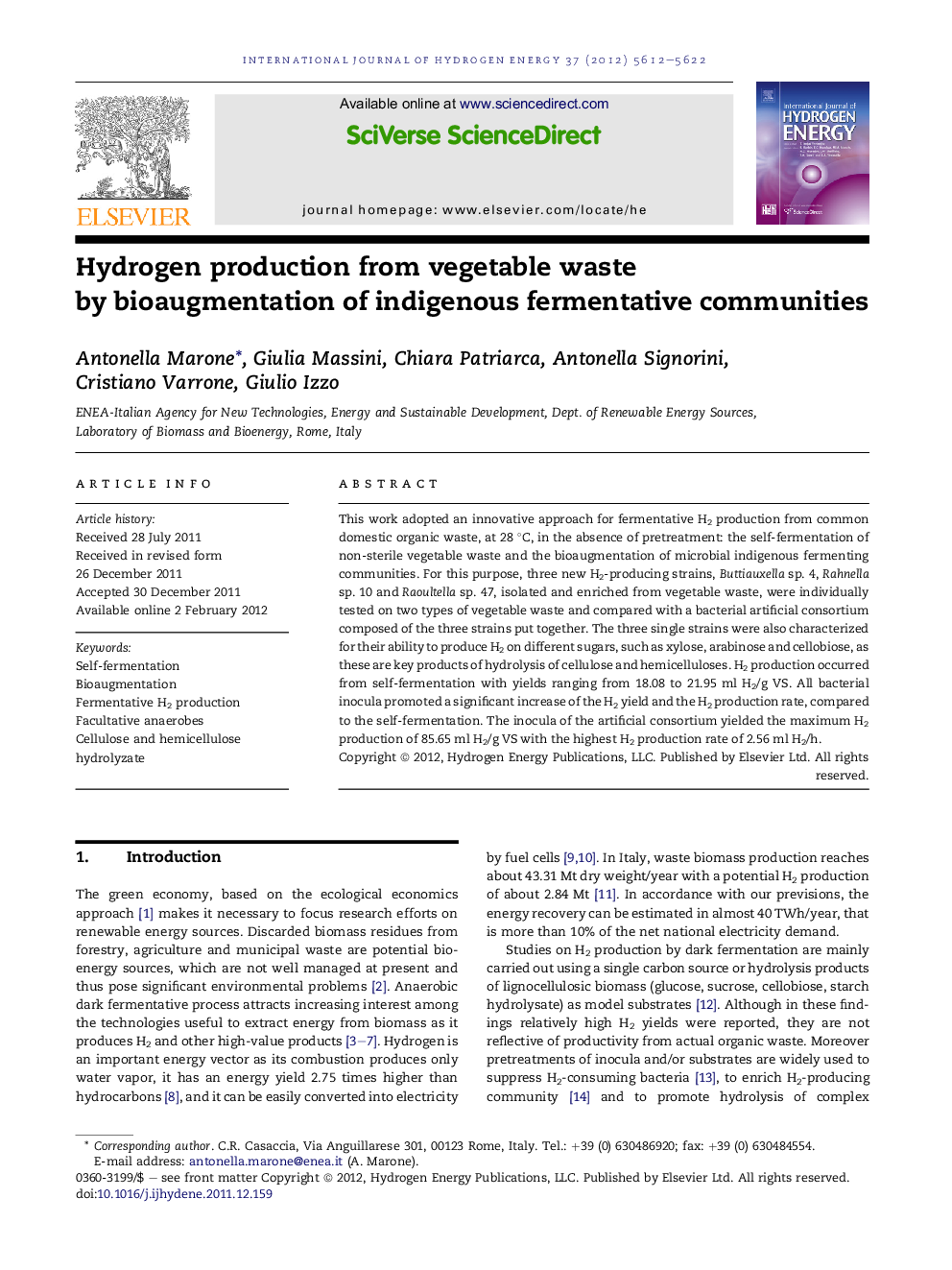| Article ID | Journal | Published Year | Pages | File Type |
|---|---|---|---|---|
| 1276850 | International Journal of Hydrogen Energy | 2012 | 11 Pages |
This work adopted an innovative approach for fermentative H2 production from common domestic organic waste, at 28 °C, in the absence of pretreatment: the self-fermentation of non-sterile vegetable waste and the bioaugmentation of microbial indigenous fermenting communities. For this purpose, three new H2-producing strains, Buttiauxella sp. 4, Rahnella sp. 10 and Raoultella sp. 47, isolated and enriched from vegetable waste, were individually tested on two types of vegetable waste and compared with a bacterial artificial consortium composed of the three strains put together. The three single strains were also characterized for their ability to produce H2 on different sugars, such as xylose, arabinose and cellobiose, as these are key products of hydrolysis of cellulose and hemicelluloses. H2 production occurred from self-fermentation with yields ranging from 18.08 to 21.95 ml H2/g VS. All bacterial inocula promoted a significant increase of the H2 yield and the H2 production rate, compared to the self-fermentation. The inocula of the artificial consortium yielded the maximum H2 production of 85.65 ml H2/g VS with the highest H2 production rate of 2.56 ml H2/h.
► We studied H2 production by self-fermentation of organic waste, at 28 °C. ► The bioaugmentation of microbial waste communities improved H2 yields and rates without pretreatment. ► Facultative anaerobes were effective in H2 production on cellulosic waste and hydrolyzates.
